|
|
|
|
|
|
|
|
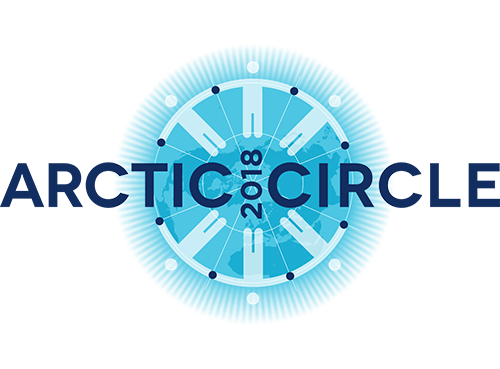 Arctic Circle Assembly, October 19-21, 2018 (Reykjavik, Iceland). The annual Arctic Circle Assembly is the largest annual international gathering on the Arctic, attended by more than 2000 participants from 60 countries. It is attended by heads of states and governments, ministers, members of parliaments, officials, experts, scientists, entrepreneurs, business leaders, indigenous representatives, environmentalists, students, activists and others from the growing international community of partners and participants interested in the future of the Arctic. Arctic Circle Assembly, October 19-21, 2018 (Reykjavik, Iceland). The annual Arctic Circle Assembly is the largest annual international gathering on the Arctic, attended by more than 2000 participants from 60 countries. It is attended by heads of states and governments, ministers, members of parliaments, officials, experts, scientists, entrepreneurs, business leaders, indigenous representatives, environmentalists, students, activists and others from the growing international community of partners and participants interested in the future of the Arctic.
|
Media
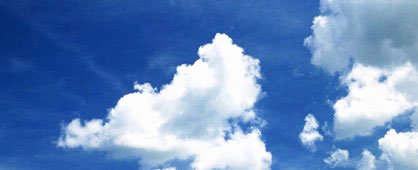 Air Pollution Reduces Arctic Cloud Lifetime, Study Suggests. Air Pollution Reduces Arctic Cloud Lifetime, Study Suggests.
Fossil fuel emissions from Asia and Europe may be cutting down the life expectancy of Arctic clouds, reducing the clouds' ability to regulate temperatures in the polar region, according to new research. A new study published in Geophysical Research Letters, a journal of the American Geophysical Union, suggests pollution plumes coming predominately from Northeast Asia and Northern Europe travel to the Arctic region and allow cloud droplets to freeze at higher temperatures. EOS
Maine Governor to Lead Delegation to Iceland. Republican Gov. Paul LePage says he'll lead a delegation of 40 Mainers to Iceland for a dialogue on the Arctic's future. LePage's office said he'll meet Saturday with Iceland's Minister of Foreign Affairs Gudlaugur Thor Thordarson. LePage says the delegation signals Maine's commitment to strengthening relationships in the Arctic. The two will re-sign a memorandum of understanding between Iceland and Maine on topics from trade, to energy, to culture and the arts. Greenwich Time
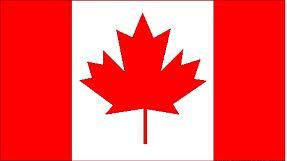 What the UN Panel's Special Climate Change Report Means for Canada. What the UN Panel's Special Climate Change Report Means for Canada. Last week's special report of the Intergovernmental Panel on Climate Change (IPCC) has focused world attention on the accelerating threat of anthropogenic warming and climate change. Its conclusion is stark: there is a material, negative impact of climate change above 1.5° Celsius of warming. Equally stark is its assessment that countries are not yet traveling the greenhouse gas reduction pathways to prevent this from happening. Many parts of the world-including Canada-are already feeling the impacts of global warming and changing climates. National Observer
|
|
Future Events
** New this week ** Towards a Roadmap for Coordinated Arctic Observing, October 24, 2018 (Berlin, Germany). The side event is a follow up to the Arctic Observing Summit held in June 2018. The theme for the AOS was "Business Case for a Pan-Arctic Observing System." The first part of the session will demonstrate the value of Arctic observations, linking these to relevant Societal Benefit Areas. The second part will show how Arctic long-term observing systems are linked to and support decision-making from local to global scales. In the summing up panel, calls to action to the Arctic Science Ministerial will be formulated. This event is convened by the Sustaining Arctic Observing Networks (SAON) initiative of the Arctic Council, the European Commission, and the Arctic Observing Summit (AOS), an activity jointly overseen by SAON and the International Arctic Science Committee (IASC).
Arctic Science Forum Associated with the 2nd Arctic Science Ministerial, October 25, 2018 (Berlin, Germany and via webcast). How vulnerable and how resilient are nature and the people of the Arctic region? How well do we understand the regional and global dynamics which are driving change in the Arctic? What impact will change in the Arctic have on us? These and other questions are the focus of this two-day conference. It will take interdisciplinary research in the Arctic to gain an understanding of past and future processes - a complex and cost-intensive venture. This makes an international network of Arctic research so important for delivering better results. Cooperation in research, the exchange of data, collaborative observation and monitoring schemes - international cooperation is imperative in research on the Arctic.
Only the Science Forum, on October 25th, will be webcast. The Arctic Ministerial, on October 26th, will NOT be webcast.
aim of this Government of Canada and the Government of Newfoundland and Labrador supported international conference is to promote stakeholder collaboration, technological innovation, harsh environment research & development, and world-class education efforts that are contributing to both Maritime and Arctic issues. This two day conference will draw a diverse group of speakers and attendees representing government, military, Canadian and U.S. Coast Guard, industry, academic leaders, Northern Leaders, research and other key stakeholders. We hope you can join us to be a part of this important dialogue
American Geophysical Union Fall meeting, December 10-14, 2018 (Washington, DC USA). The AGU 2018 Fall Meeting will mark another dynamic year of discovery in Earth and space science, serve as the advent of AGU's Centennial year, and provide a special opportunity to share our science with world  leaders in Washington, D.C. As the largest Earth and space science gathering in the world, the Fall Meeting places you in the center of a global community of scientists drawn from myriad fields of study whose work protects the health and welfare of people worldwide, spurs innovation, and informs decisions that are critical to the sustainability of the Earth.
ArcticNet: Annual Scientific Meeting 2018, December 10-14, 2018 (Ottawa, ON Canada). Canada's North is experiencing unprecedented change in its sea and terrestrial ice, permafrost and ecosystems under the triple pressures of climate change, industrialization and modernization. The impacts of these pressures can be seen on food and energy security, shipping, sovereignty, northern community health and well-being, and sustainable development and resource exploitation. All these issues have brought the North to the forefront of national and international agendas. Building on the success of its previous Annual Scientific Meetings and International Arctic Change Conferences, the Arctic Network of Centers of Excellence announces the 14th ArcticNet Annual Scientific Meeting.
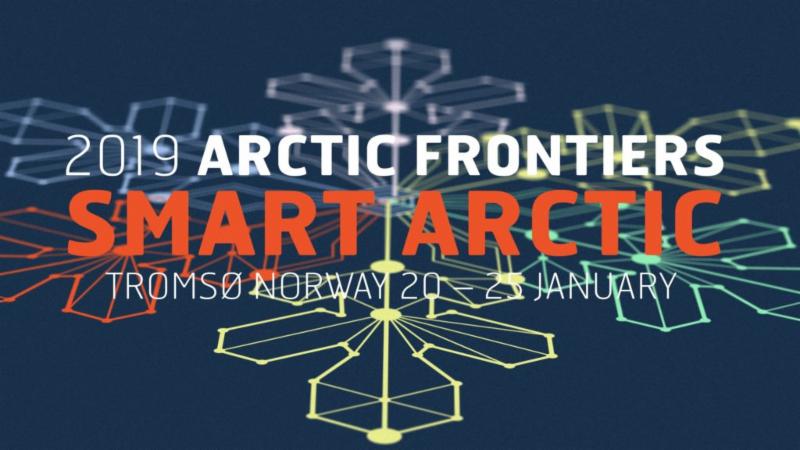 Arctic Frontiers, January 20-25, 2019 (Tromso, Norway). The Arctic Frontiers is a global scientific conference on economic, societal, and environmental sustainable growth. This year's theme will be "Smart Arctic," with a pan-arctic emphasis, and an effort to build new partnerships across nations, generations and ethnic groups. Arctic Frontiers provides a forum for dialogue and communication between science, government and industry. The plenary program will have five main sessions: State of the Arctic, Blue Growth, Smart Solutions, Bridging the Gap, and Arctic business prospects. An abstract-driven science program will address Plastics in the Ocean, the Future of Governance and Handling Vulnerability in Arctic Ecosystems, State of the Arctic and A Smart Arctic Future.
 of the AAG includes over 8,500 geographers converging from the U.S., Canada, and nearly 60 other countries in a typical year including geographers, GIS specialists, environmental scientists, and other leaders for the latest in research and applications in geography, sustainability, and GIScience. of the AAG includes over 8,500 geographers converging from the U.S., Canada, and nearly 60 other countries in a typical year including geographers, GIS specialists, environmental scientists, and other leaders for the latest in research and applications in geography, sustainability, and GIScience.
|
|

  
4350 N. Fairfax Drive, Suite 510
Arlington, VA 22203, USA
External links in this publication, and on the USARC's World Wide Web site ( www.arctic.gov) do not constitute endorsement by the US Arctic Research Commission of external Web sites or the information, products or services contained therein. For other than authorized activities, the USARC does not exercise any editorial control over the information you may find at these locations. These links are provided consistent with the stated purpose of this newsletter and the USARC Web site.
|
|
|
|
|
|
|
|
|
 Air Pollution Reduces Arctic Cloud Lifetime, Study Suggests.
Air Pollution Reduces Arctic Cloud Lifetime, Study Suggests.  What the UN Panel's Special Climate Change Report Means for Canada. Last week's special report of the Intergovernmental Panel on Climate Change (IPCC) has focused world attention on the accelerating threat of anthropogenic warming and climate change. Its conclusion is stark: there is a material, negative impact of climate change above 1.5° Celsius of warming. Equally stark is its assessment that countries are not yet traveling the greenhouse gas reduction pathways to prevent this from happening. Many parts of the world-including Canada-are already feeling the impacts of global warming and changing climates. National Observer
What the UN Panel's Special Climate Change Report Means for Canada. Last week's special report of the Intergovernmental Panel on Climate Change (IPCC) has focused world attention on the accelerating threat of anthropogenic warming and climate change. Its conclusion is stark: there is a material, negative impact of climate change above 1.5° Celsius of warming. Equally stark is its assessment that countries are not yet traveling the greenhouse gas reduction pathways to prevent this from happening. Many parts of the world-including Canada-are already feeling the impacts of global warming and changing climates. National Observer

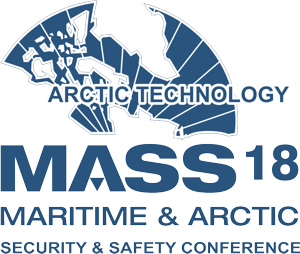 must-attend event to gain a wide perspective on challenges, opportunities and policies related to the Arctic and North Atlantic maritime environments. The
must-attend event to gain a wide perspective on challenges, opportunities and policies related to the Arctic and North Atlantic maritime environments. The 
